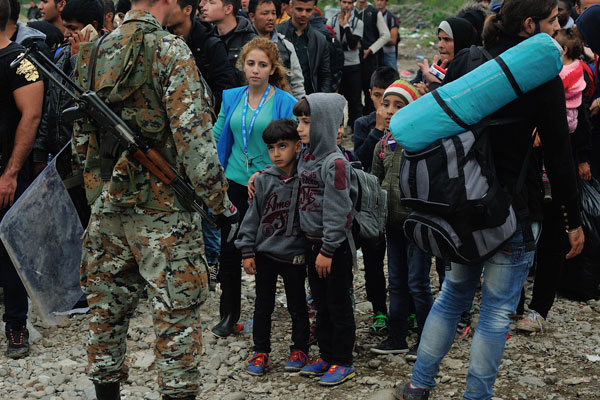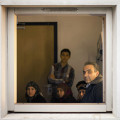Hierarchies of suffering
Written by our partner Migszol, the Migrant Group Solidarity of Hungary
In late October, European leaders met to discuss the crisis that EU countries are facing due to their incapacity to provide the most basic human rights to people who are seeking international protection in their territory. They agreed on a 17 points plan that places emphasis on the Balkan route, and calls for “discouraging the movement of refugees or migrants” to other countries without informing the authorities, and much more.
On Thursday 19 November 2015, as part of interpreting this plan, the former Yugoslav Republic of Macedonia, Serbia, Croatia and Slovenia have started barring entry to migrants, refugees and asylum seekers who are not from Afghanistan, Iraq, Syria, and in some cases Palestine. This specific type of border closure has not, however, been made explicit in the EU leader’s plan. Rather, supposedly legitimized through increased security concerns after the Paris attacks, this measurement has to be understood as one of the steps aimed at harmonizing “national and coordinated efforts to return migrants not in need of international protection” (point 11 of the plan). This is done by managing external borders and registration centers with additional support from Frontex, the EU external borders agency. Additionally, it has been reported that Macedonia has also started to build a fence to better control the movement of people crossing its territory. So, the governmental equation is simple: Another fence plus more Frontex makes less people. Easy math.
The new policy, though, seeks to withhold people who could later be categorized as economic migrants, those who are supposedly not fleeing from war or persecution, and terms them illegal migrants. But are the above mentioned three countries really the only war-zones and crisis-areas in the world? Isn’t asylum granted on individual, and not on national basis? If such national distinctions can be made, why doesn’t the EU deploy the temporary protection directive that allows the granting of asylum to large numbers of people at the same time?
The reasoning, based on nationalities, is faulty to begin with. According to the interactive map from Crisis Watch, about half of the world is witnessing a conflict of some sort. Also, the selective practice does not appear as racial profiling, since being Afghan, Syrian or Iraqi is not a racial denomination but a national one. So, let’s think again about what is at stake here.
The choice of nationalities is “crisis-oriented” at best and entirely random at worst. As such, emphasizing an ongoing “crisis” is supposed to legitimize the new measurement by saying “we take in the ones who suffer most, because we can’t take in all”. Yet, this is of course not the point. The point is that the orientation to help only the people who are assumably suffering “the most” allows for distracting us from the underlying question of right to protection as a general right, beyond nationality. This strategy is visible in statements such as the following, by a spokesman for the Slovenian ministry of interior: “We absolutely need to provide protection to those who need it, whose lives are threatened, who are escaping war zones (…). No country has limitless capacity, so the capacity should be for those whose lives are really in need.”
In practice, this means that people who cannot prove that they are from Syria, Afghanistan or Iraq (i.e. they do not have documents) and people from other countries such as Iran, Morocco, Pakistan, Somalia, Eritrea, Bangladesh or Palestine are stopped at the border. As of now, it is not clear what will happen to them. Currently, there is, however, no facility to host them in neighboring Greece, and people from all other nationalities are forced to wait outside of registration centers “freezing and sitting on stones” as a volunteer in Gevgelija on the Greek-Macedonian border has put it. Since more and more people from other nationalities than Afghan, Iraqi or Syrian are waiting since Thursday morning, they have started to protest against their referral to Greece and demand to continue their journey westward instead. Some locals also came to express their support to the people protesting. Then, as of Thursday night, nobody crossed the border to Macedonia anymore.
Migszol stands in solidarity with those requesting entry to Europe. We call everyone to oppose the recent decision to create an artificial hierarchy according to an assumed seriousness of suffering associated with certain nationalities, and we ask everyone, along us, to reject the official policy of dehumanizing people and their suffering by treating them as mere numbers. We cannot over-emphasize the brutality of this policy. It violates one of the most basic rights we all hold: the right to seek asylum in the country of your choice, no matter which country you were born in, and no matter whether you possess a passport or not.
You can follow updates on the situation on the refugee map.



